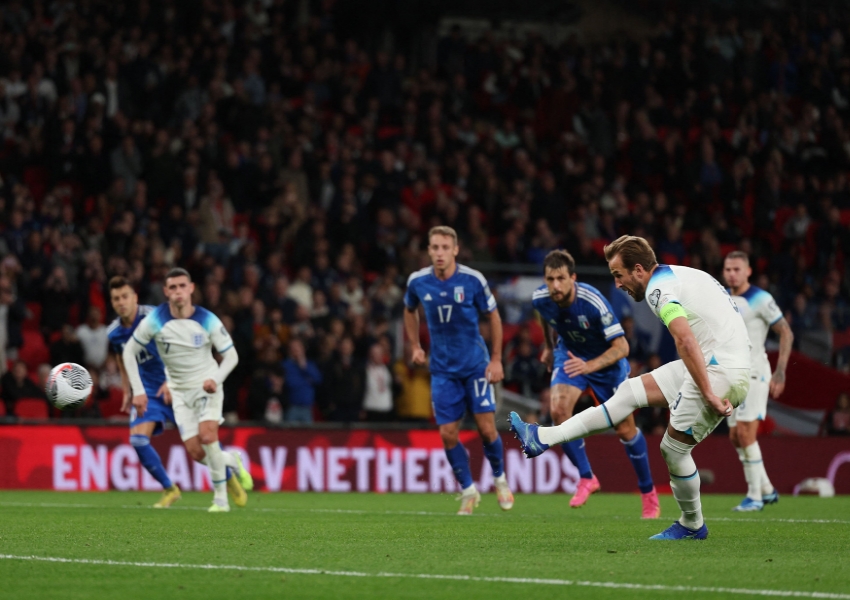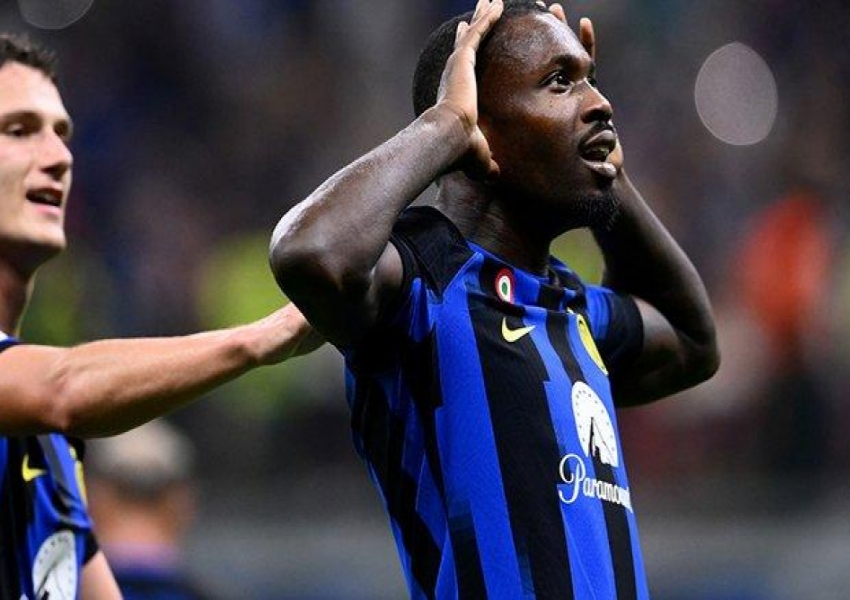Unpacking the Battle Behind Italy's New Tax Law: Inter Milan's Triple Woes and Glimmers of Hope
The current atmosphere in Italian football is anything but calm, with recent events adding fuel to an already raging fire. The backdrop to this chaos is Italy's loss to England, casting doubt over their qualification for the European Championship. Yesterday, the front page of "La Gazzetta dello Sport" screamed "Farewell, New Tax Law," causing an outcry among many fans. However, it was soon confirmed that the new tax law still applies to football, at least for now. This confusion highlights the reasons behind Italy's declining economy, sports scene, and living standards.

Subsequently, several Italian media outlets revealed the power struggle behind the "tax law cancellation controversy." A significant faction, including the players' union, local legends, and some politicians, has been pushing for the law's repeal. Even though the law currently remains in effect for football, its eventual cancellation seems inevitable. This recent uproar might just be a test of the waters.

Most Serie A teams are financially strapped. Given that clubs pay players' taxes, many teams have tried to control costs by signing players who benefit from tax breaks. Inter Milan, for example, replaced Marcelo Brozović and Edin Džeko with Benjamin Pavard and Marcus Thuram this summer, partly because the latter pair's net salaries qualify for tax benefits, saving the club money. While a few million euros might seem insignificant to Premier League clubs, it's a substantial amount for Serie A teams. AC Milan has also seen a decline in local players, instead signing many foreign players who qualify for tax breaks. If the new tax law is indeed repealed, AC Milan will likely face the highest back taxes.

Italian players, often hailed by local fans and media but occasionally embroiled in gambling scandals, are unhappy. They feel the new tax law deprives them of better salaries and fame at big clubs. Over the past two years, the players' union has consistently opposed the tax law, supported by influential figures and politicians. The principle of "not worrying about scarcity but about inequality" means that in financially constrained environments, conflicts over limited resources become intense. With such powerful figures behind the scenes, the tax law's repeal seems inevitable, likely within a year or two.
Serie A faces other issues too. The betting scandal, for instance, might be downplayed. Nicolo Fagioli's confession led to only a seven-month suspension. Media interpretations suggest that authorities prefer to handle the scandal quietly to avoid a more extensive investigation that could destabilize the league. Legal experts argue Fagioli should have faced a "1-3 year suspension," with some prosecutors suggesting "5-7 years" wouldn't be excessive. The relatively lenient "7 months plus 5 months" suspension indicates a desire to move past the issue without causing further disruption.
This is concerning because ignoring the problem won't make it go away; it might even worsen. Addressing the root cause, though painful, offers hope for healing. Unfortunately, some believe avoiding the issue is the best approach, hoping to maintain a façade of stability.
Another blow to Serie A is the potential drop in TV broadcast revenue. Current negotiations suggest that future contracts, lasting until 2030, might fetch only €900 million, less than the current €927.5 million deal. This means Inter Milan's €85 million from last season's TV rights might be the peak for the foreseeable future. Returning to the days when Massimo Moratti's Inter earned €110 million annually from TV rights might not happen until the 2040s or beyond.
These issues pose significant challenges for Inter Milan. However, amidst this gloom, there is a silver lining. Inter has regained the ability to attract Chinese sponsorships, which might signal a shift in fortunes. The club recently secured a strategic partnership with China's Xinyuan Auto. While the sponsorship fee is undisclosed, the fact that a Chinese company is investing in Inter again is noteworthy. Conversations with officials from the Jiangsu Sports Bureau suggest this is just the beginning, as China is once again looking to expand its global influence.
In summary, Italian football's environment is currently very unfavorable, and Inter Milan's path forward is fraught with difficulties. Yet, even in this dark scenario, there remains a glimmer of hope for Inter, a testament to the club's enduring resilience and potential for rebirth.
A Deeper Dive into the Tax Law Controversy
The new tax law was initially introduced to boost Italy's economy by attracting foreign talent across various sectors, including football. This tax incentive allowed clubs to sign foreign players at a lower gross salary compared to their Italian counterparts. While this policy helped clubs like Inter Milan and AC Milan to manage their finances better by signing tax-benefit eligible players, it created discontent among Italian players and their representatives.
Italian players argue that the tax law undermines their bargaining power and limits their financial growth within top clubs. The players' union and prominent figures in Italian football have lobbied extensively for the law's repeal, claiming it creates an uneven playing field. The political landscape in Italy, known for its volatility, has seen several politicians siding with the players' union, further complicating the issue.
This battle over the tax law reflects broader socio-economic challenges in Italy. The country's economic instability is mirrored in its sports industry, where financial prudence often clashes with the need for competitive advantage. The eventual repeal of the tax law seems imminent, but it will likely come at a cost, forcing clubs to rethink their financial strategies and potentially impacting the overall quality of Serie A.
The Betting Scandal and Its Implications
The recent betting scandal involving Nicolo Fagioli has exposed deeper issues within Italian football. The relatively lenient punishment handed to Fagioli suggests a reluctance to delve deeper into the matter, possibly to avoid further damaging the league's reputation. This approach, however, risks perpetuating a culture of complacency and corruption.
Legal experts and sports analysts believe that a harsher punishment could have served as a deterrent to others and initiated a much-needed cleanup within the sport. Instead, the quick resolution and light sentence indicate a desire to maintain the status quo, prioritizing short-term stability over long-term integrity.
The reluctance to tackle the betting issue head-on reflects broader governance issues within Italian football. Addressing these problems requires a comprehensive approach, involving stricter regulations, better oversight, and a cultural shift towards greater accountability. Without such measures, Italian football risks further scandals and a loss of credibility.
Financial Uncertainties and Future Prospects
The potential drop in TV broadcast revenue adds another layer of complexity to the challenges facing Serie A. The league's financial health heavily depends on broadcasting deals, and a reduction in revenue will impact clubs' budgets and their ability to compete both domestically and internationally.
Inter Milan, like other Serie A clubs, will need to find alternative revenue streams to compensate for the potential shortfall in TV money. This might involve expanding their global fanbase, securing more sponsorships, and improving commercial operations. The recent partnership with Xinyuan Auto is a positive step, indicating that Inter can still attract significant investments despite the challenging environment.
Navigating the Road Ahead
Inter Milan's ability to adapt to these challenges will determine their future success. The club must balance financial prudence with the need to remain competitive on the field. This requires strategic planning, astute management, and leveraging their global brand to attract investments and partnerships.
The broader issues within Italian football, including the tax law controversy and governance challenges, need to be addressed at a systemic level. Clubs, the league, and the government must work together to create a sustainable and fair environment that promotes both financial stability and competitive integrity.
For Inter Milan, the journey ahead is filled with obstacles, but also opportunities. The club's history of resilience and innovation positions them well to navigate these challenges and emerge stronger. While the current landscape is fraught with difficulties, Inter's ability to find new revenue sources and adapt to changing conditions offers a beacon of hope in an otherwise dark scenario.
Copyright Statement:
Author: mrfootballer
Source: Mrfootballer
The copyright of this article belongs to the author. Reproduction is not allowed without permission.
Recommended Blog
- UEFA Champions League First Qualifying Round: Phoenix's Technical Edge Shines, Vikingur May Have Missed Their Chance
- Inter Milan's "New Ilicic" Impresses in Training Amid National Team Tug-of-War: Ambition or Folly?
- Champions League Group A Matchday 3: Manchester United Calm at Home, Bayern Munich and Opponents in Mirror Development
- Zhang Kangyang Issues Two-Star Directive: Inter Milan's Season Strategy Shift? Data King Awaits Lukaku
- Inter Milan's Record Tops Europe but Holds Hidden Mysteries: New Super Sub Brewing for Crucial Champions League Clash
- Serie A Round 9 Preview: AC Milan's Goalkeeper Crisis, Will Roma Rest Lukaku?
- Hulking Hercules Delivers Precision: Inter Milan's Key Turning Point in Title Race
- Inter Milan's Tactical Shifts Target Major Weaknesses Amid CEO's Stern Warning
- Bundesliga Round 8 Preview: Dortmund on the Rise, Leverkusen Struggling to Shake Off Complacency
- Inter Milan's Four New Weapons Bring New Hope: Aiming to Reclaim Serie A's Best Set-Piece Team
Hot Blog
- English Media: Manchester United Will Win Premier League Title in 2028! History Will Repeat Itself, Two Teams Serve as Inspirations
- 0-2 Double Defeat! China National Team Stuck at 6 Points: No More Direct World Cup Hopes, Two Crucial Matches Ahead
- 4 AM Showdown: Barcelona's Revenge Match! Win = 3-Point Lead Over Real Madrid, Key Players Rested
- China National Football Team Drops 13.6 Points, Slips to 94th in FIFA Rankings: Syria Overtakes, New 9-Year Low
- 0-0 Draw! Japan 12 Shots, 2 Missed One-on-Ones: 8 Matches, 20 Points, Group Winner, Saudi Arabia Stuck at 10 Points in 3rd
- 4-1, Double Win Over Brazil! Argentina Celebrates: World Cup Qualification Secured, 4th Team Globally to Qualify
- Real Madrid Got Lazy: 7 Kilometers Less Running in UCL! Two Superstar Spectators While Barça Outruns Them All
- United Go for Glory: Unbeaten in 10, Fueled by Kobbie Mainoo’s Return, Red Devils Eye Europa League Crown
- Champions League Classic: Barça’s Midfield Maestro Worshipped by Thousands After 11.5KM Marathon
- Champions League Semifinal Odds: Barça at 99%, Real Madrid’s Hopes Dwindle to 6%, PSG Cruise Ahead